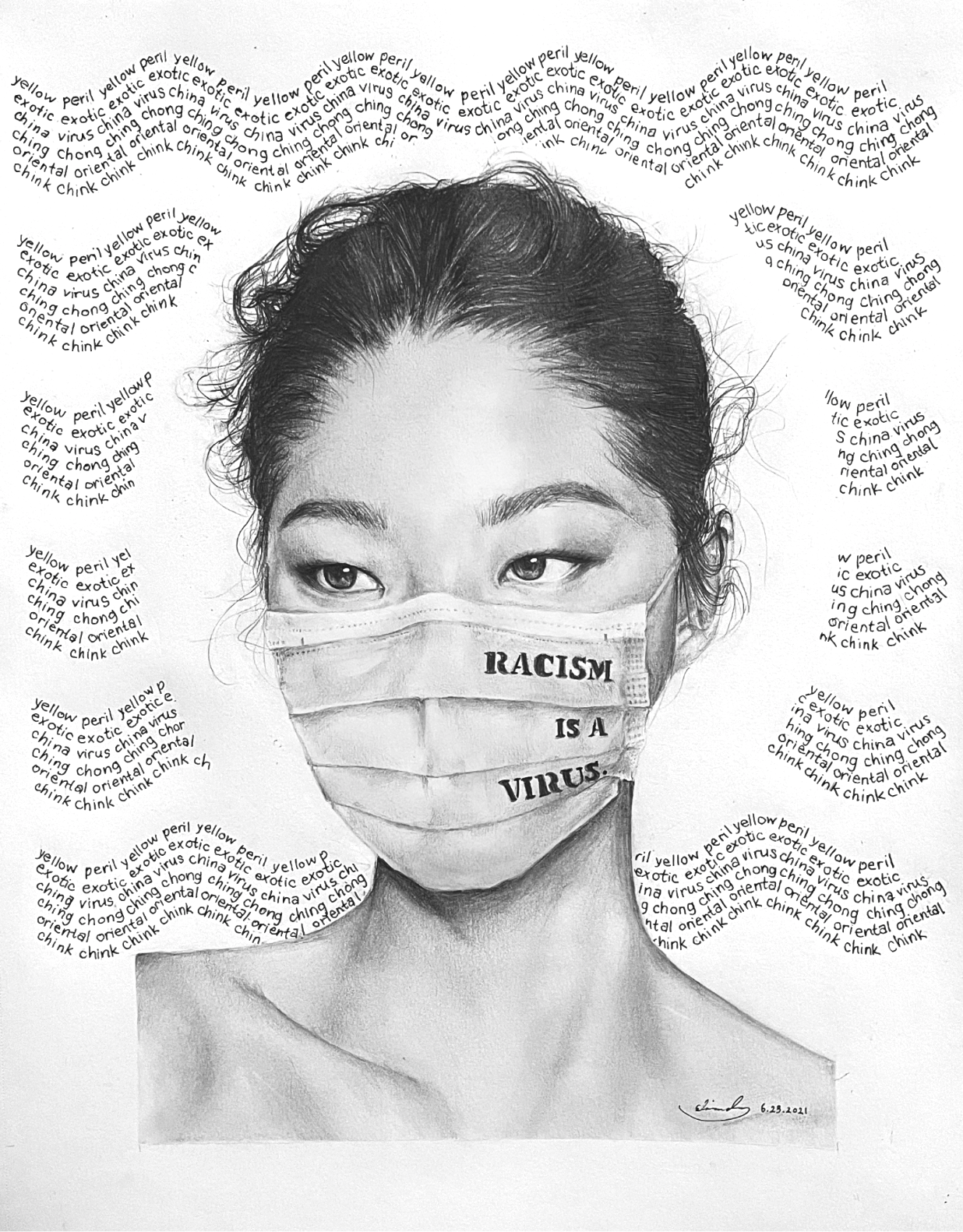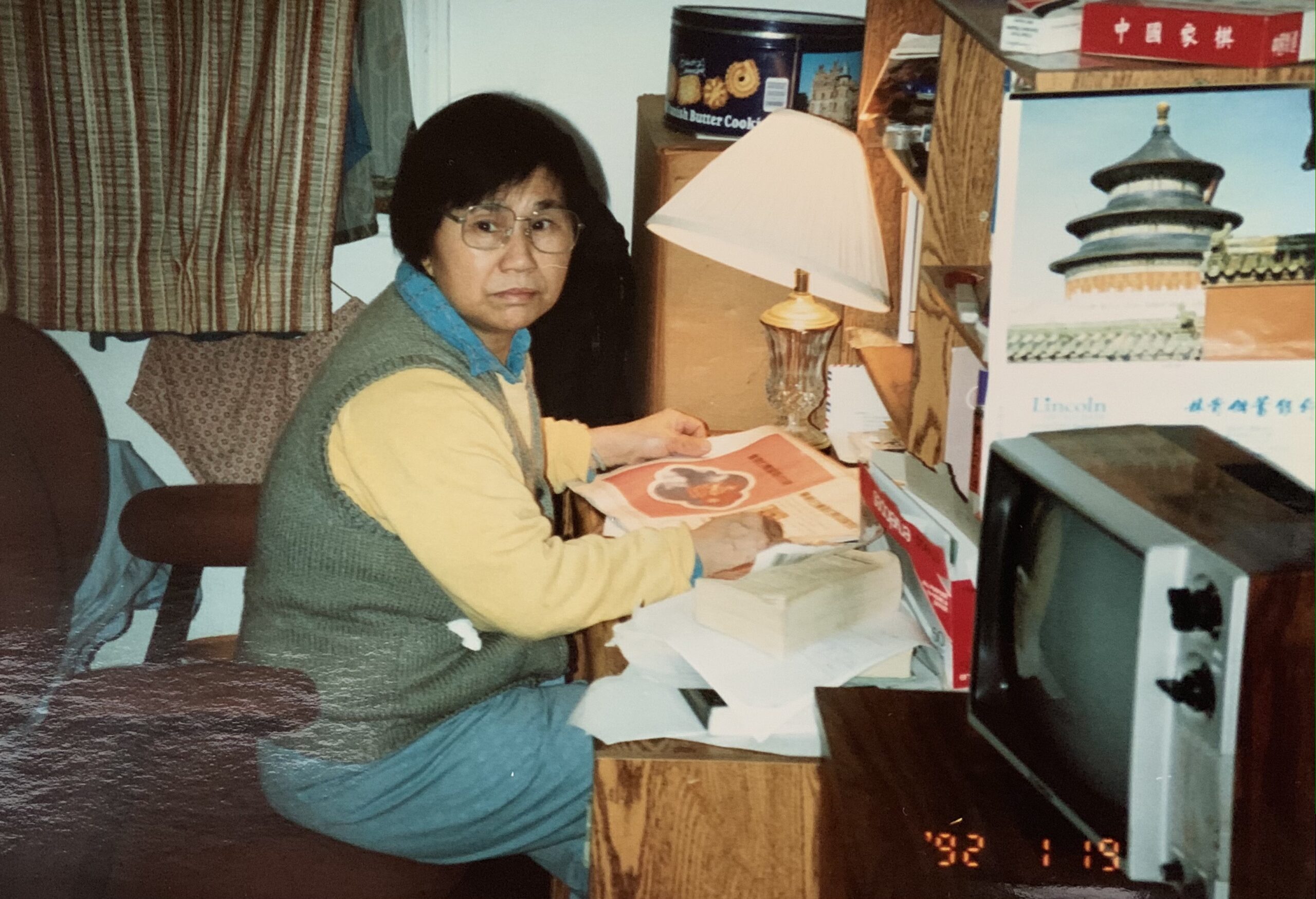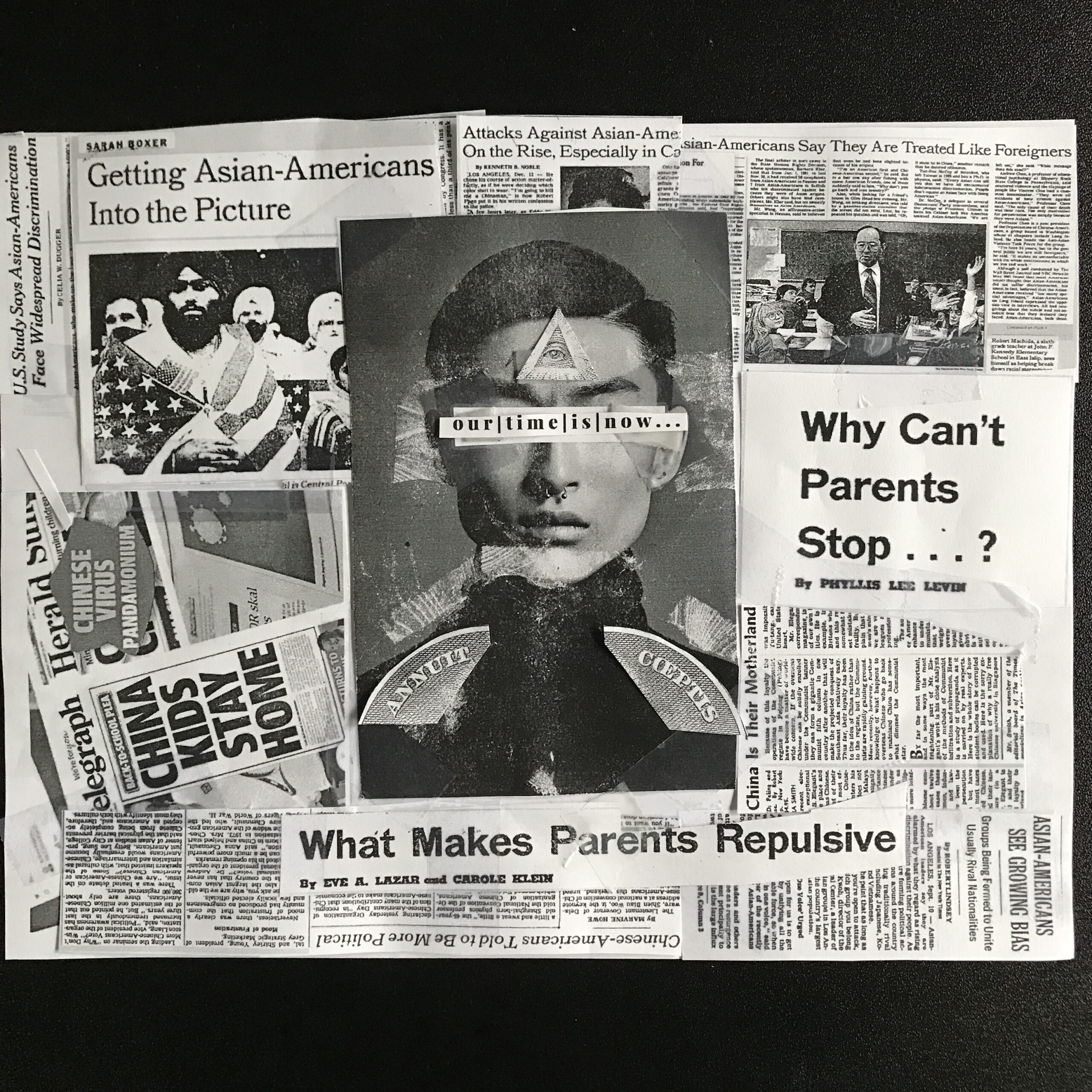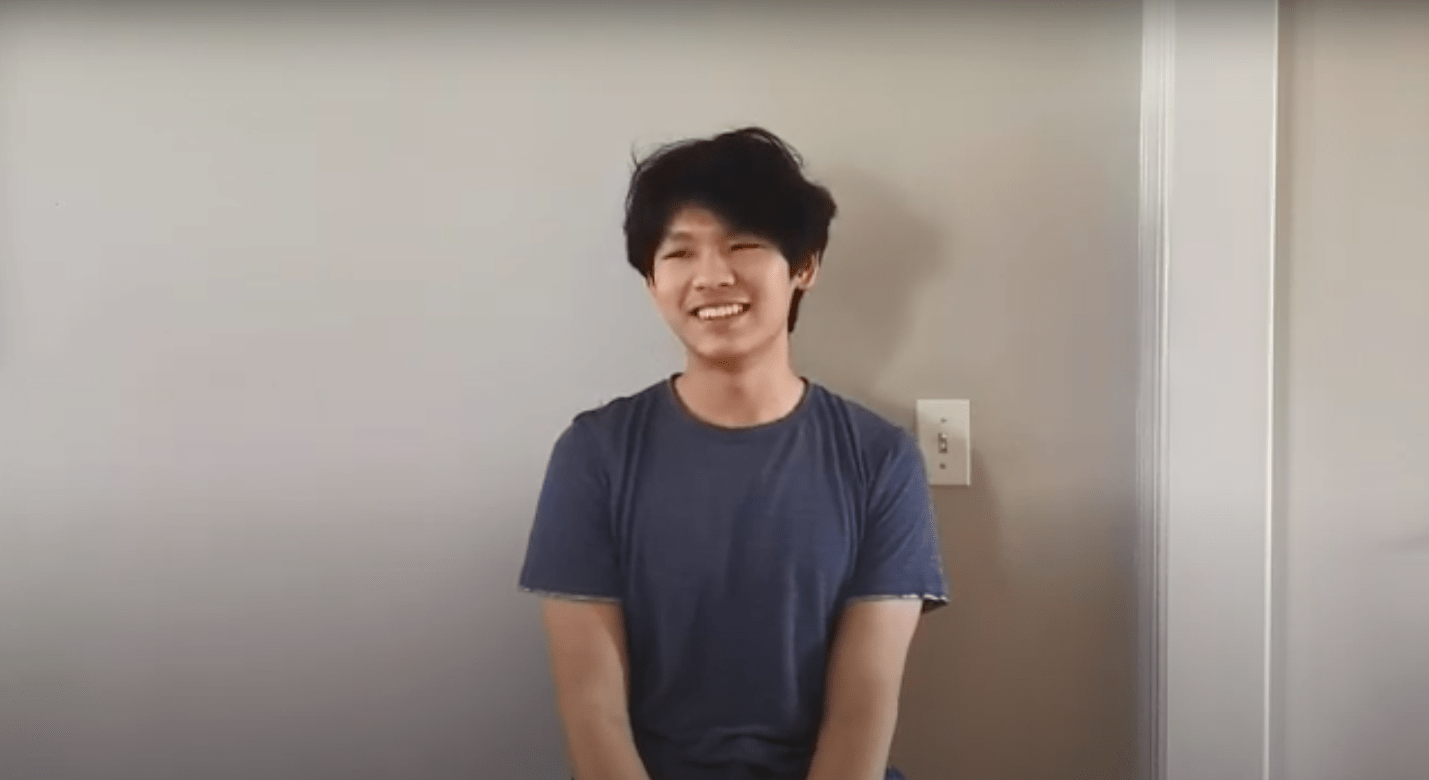2021 UCA Summer University Capstone Media Projects
From captivating audio stories to vivid illustrations, we present some of the most notable digital media project submissions of UCA’s debut Summer University. With an overarching theme of “Uplifting the Chinese American Community,” these projects provide a glimpse into the multifaceted, nuanced identities of today’s Chinese American youth.


Racism is a Virus
by Eliana Sun
This sketch brings awareness to the hate and racism many Asian-Americans have had to face for centuries unacknowledged, much of it in the form of racial and ethnic slurs. Given this past year’s circumstances and COVID-19, hostility and crimes committed against the AAPI community has risen dramatically to the point where innocent people are being harassed and assaulted solely because of their race. In the end, people have to realize that in actuality, the key virus here is racism.
More Sweet and Less Bitter
多一点甜 少一点苦
by Felicity Chang
Last week, when I was helping my mother sort through old photo albums and documents, she handed me an essay my father wrote in December of 1991, a year after he immigrated to the US with my grandparents. What stuck out to me the most was perhaps the concluding quote from my great-uncle, “Let your children have more sweet and less bitter by giving yourself more bitter and less sweet.” From that sentiment is a story spanning three generations, multiple bouts of hardship and perseverance, and my Chinese American family’s ultimate desire to succeed.
Artistic Statement
There are certain cultural values that are distinctively linked to Chinese Americans, one of which being the idea that parents are responsible for their children’s futures. Coming from an immigrant family, I wanted to recognize my grandparents’ sacrifices for my parents, and my parents’ sacrifices for me. Upon reading an essay my father wrote 30 years ago, I quickly realized that I didn’t know as much as I thought about my own family’s journey to the US. That was perhaps what sparked this project. In the process of curating this audio story documentary, I spent hours scouring old albums with my mom and hearing the stories that were behind each photo — it was a process of self-discovery, and a very enlightening process at that. I am forever grateful for the chance to live a fulfilling life without having to choose between sacrifice and success. I hope this story will serve to inspire and motivate other second-generation Chinese Americans as well as showcase an example of our cultural values to the general public.


Identity Masks
by Cynthia Li
This cartoon represents a few parts of my identity. One half represents my Chinese identity and one represents my American identity. It’s a symbol of the mixing of the two cultures and how I’m still not sure where I fit in.
Artistic Statement
I used the masks to represent different cultures, so there’s the juxtaposition of the masks of the Beijing Opera and the iconic western drama masks. I tried to make each side mirror the other in concept.
Struggling to Bridge the Gap
by Xinyi Huang
This is a short podcast episode that deals with how young people struggle to find who they really are, and the feeling of being held back by one culture and desperately wishing to become a part of another.
Exploring the nuances of a multicultural identity
Bridging the gap
We are all Americans, but most importantly we are all People
by William Lin
The world has been divided even more so now than ever before, during the most connected time in history. People often judge others and essentially ostracized others. However, we have to understand that people, though different, are fundamentally the same. People should do what makes them happy, as long as it makes them fulfilled and it doesn’t hurt others. Society should be more accepting even though by nurture some people may hinder progression in societal acceptance, by nature people are generally accepting towards anyone.
Artistic Statement
The message I wanted to convey from my work is that divisions set by society doesnt matter and you should do what makes you happy and fulfilled; you will find acceptance in yourself and eventually by other people. The two main characters of my digital artwork is a queer African American and queer Asian American. Generally, in older generations and even now in more conservative families, this couple combination would face prejudice even from their own families. However, I wanted to convey the message that all that matters is that they themselves should strive to be happy and if being together fulfills themselves they should be accepted.
Our time is now


by Brian Yang
In making this piece I wanted to create something that would speak to the misconception that the Chinese-American youth of today are a ‘model minority’ that have grown up in a society free from any troubles and hardship whatsoever. Because the reality is that the second generation indeed has its own struggles and battles that the prior generations have not fully acknowledged yet. I wanted to capture the largely tense relationship in the way that the Western and Chinese cultures see each other. The image of the young asian man front and center reminds the viewer that even though negativity may exist, the power and attention is still focused on you, not on the hollow stereotypes that float in the background. The eye of providence on the man’s forehead is a message that the heavens will always be watching over those who choose to make the world a better place.
I Teach and I Learn
by Eric Song
A fond description of an early childhood memory, me as a confident novice. I flaunt my abilities. I then talk about the development of insecurities regarding my culture as I grew up, culminating in a finale where I mature enough to see the real world and make amends with my new and old ideals. I am a Chinese American who has reconciled his two homes.
Artistic Statement
I think people grow up and forget who they used to be. That little kid who looks at everything with purity and wonder eventually fades away and dies in their mind. Not mine. I know who I used to be, I know where I came from, I know where my roots are, and that’s something I won’t ever discard.
American Dream
by Janice Dong
Many Chinese families move to America to live the American Dream. A place where they can escape from their previous impoverished life. Where they can start fresh in a new country and build to success. A place of freedom and equality. I took inspiration from my cousin, who was close in age to me when immigrating to America, imagination of the US. He never experienced racism until living there and was very surprised. Which completely shattered their image of the new world. The family represents us, huddled together, being cornered by all the new found racist they have never experienced. Being pointed out by multiple individuals, exposing how physically and culturally different they are.
Chinese American Teens on Identity
by Edward Zhang
This is a video consisting of interviews with 5 Chinese American teens. It focuses on certain questions about their identity and relationship with Chinese culture. It is meant to be a quick, enjoyable video to watch and get the perspectives of these teens.
Artistic Statement
We often wonder, who are we? Where do we come from? What is our purpose? For children of immigrants, those questions can sometimes be even more convoluted, as these children often have to grow up straddled by two very different and possibly conflicting cultures. Many Chinese-American youth go through a variety of different experiences and upbringing, and I wanted to showcase that through multiple interviews, with thought-provoking questions. Through this video, we get an idea of the diverse upbringings of Chinese American teens, their personal thoughts on Chinese identity, and how it affects their life.


The Road Less Traveled
by Ashley Cheng
This is a cartoon with a focus on the identity crisis that many Chinese Americans unfortunately face. At times, we feel as though we aren’t fully accepted by our Chinese peers and community for being too “American.” In an ironic twist, we too are not accepted for being as “Chinese” as we are in America. Due to this, we Chinese Americans are often forced to follow a separate path of overcoming stereotypes, discrimination, and of course, identity “loss.”
Artistic Statement
I grew up in the San Francisco Bay Area so early on in the creation process, I decided to loosely base the American side of my cartoon on San Francisco. The Chinese side was based on many different experiences that I’ve had. Ultimately, it came out as a mixture of the streets of SF’s Chinatown and Shanghai (which was the last Chinese city I visited before the pandemic hit). As for the actual message, I decided to do/ address this topic because it’s always been a thought that has nagged at me from the back of the head and so I thought it would be meaningful to do my project on it. Regarding a few artistic choices I made, I just want to say that the art style is definitely very “messy” but I did this purposely because I wanted the piece as a whole to represent my inner thoughts on my own identity and they are not put together whatsoever. Sometimes they’re hazy and muddled and I do hope that was translated into my work. Finally, I chose this title as an allusion to the classic poem, “The Road Not Taken” by Robert Frost. To my interpretation, the speaker takes the road less-traveled by in a moment of individuality, which is something I personally hope to accomplish and find in my life; a moment in which being true to myself can make “all the difference.”
Po Fu Chen Zhou
by Ingrid Yan
This project is about how I had lost and forgotten my Chinese culture and how I got it back. I also talk about my Chinese class and the story behind the Chinese idiom po fu chen zhou and how it relates to me. I talk about what I want the public to know and to take away from my piece. How it’s never too late to start discovering your identity.
Artistic Statement
I chose the idiom po fu chen zhou because it reflects my continuous journey with balancing a Chinese ancestry and an American background. I had forgotten and gave up on my Chinese culture and just now am getting it back, just now is it starting to sink in how much I do not want to lose this part of me. Through scripting and recording I learned a new idiom, I learned more about myself, and it was a good reflection on my self discovery so far. I want people to know that it’s easy to lose parts of who you are but it’s also not too late to start discovering. Ancestry or background, it is a part of who you are and you should be proud of it.
